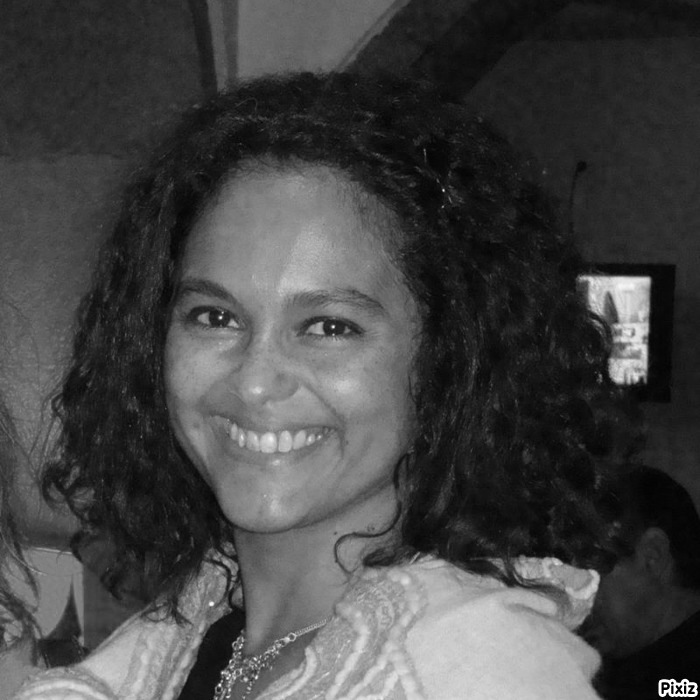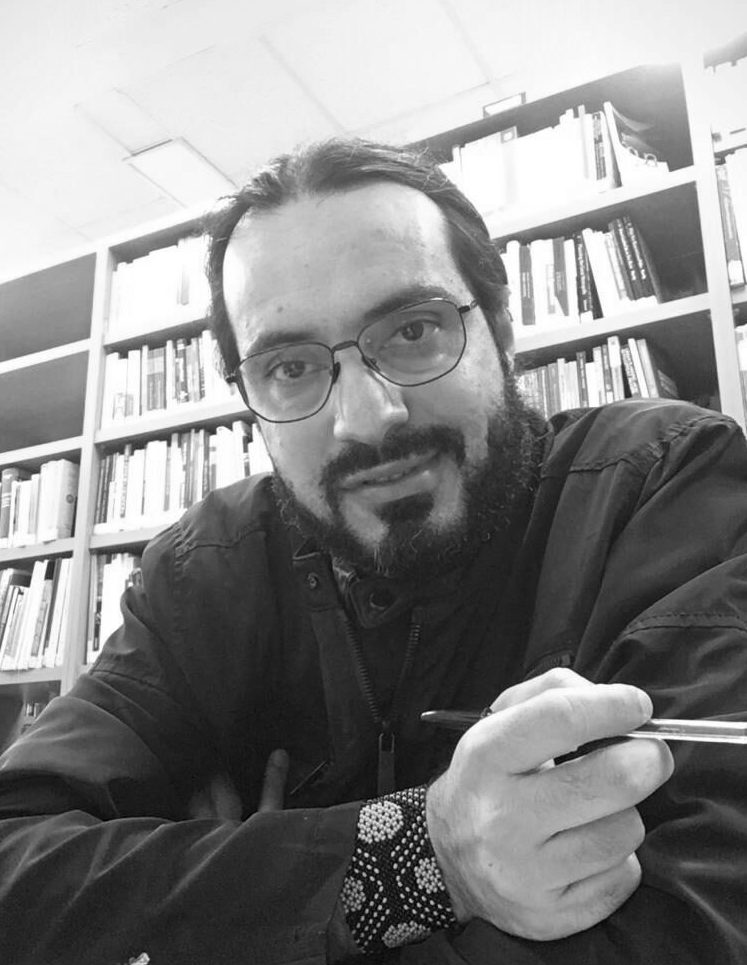Post-Doctorate in Literary Studies, by Universidade NOVA de Lisboa, PhD in Contemporary Portuguese Literature, and Master in Portuguese Studies, by the same University. Researcher at Universidade NOVA de Lisboa, Faculdade de Ciências Sociais e Humanas (NOVA FCSH). She works in the domains of Literature and the Arts and their close relationship, namely in the field of research on literary and artistic education. She is the author of the books Manuel António Pina – Uma Pedagogia do Literário (Solar System – DOCUMENTA, 2017); Mário de Sá-Carneiro: Um Instante de Suspensão (Edições Vendaval, 2003). She coordinates the research project Por uma Pedagogia Criativa, on Manuel António Pina’s work for children. She also coordinates, within the scope of her research, two pedagogical projects: Motiv/Art (Art Citizenship), which aims to promote Literature and the Arts in the 1st cycle of Basic Education and (in the 2021-2022 biennium) the project Confi/Arte: re-creative workshops − Arts and Education for the Values of Global Citizenship in the 21st Century (with the support of DgArtes). She wrote three books for children: Missing Beauty (2007) (Hans Christian Andersen Literary Prize, from Figueira da Foz City), The Blue Pencil (2008); The Land of Wise Men (2021). She also wrote, in co-authorship with Gustavo Rubim, the theater play Assim também Eu (2010). She is the creator and editor of Revista Dobra Literatura Arte Design. She is also the author of several articles, published in specialized magazines, within the scope of contemporary Portuguese literature and the promotion of literary reading in close connection with an artistic education since childhood. [Scientific outputs]
Paula Cristina Costa
Paula Cristina Lopes da Costa is an Associate Professor at School of Social Sciences and Humanities from the Universidade NOVA de Lisboa since 1988. From the same University she has a Degree on Romanic Languages and Literatures (1985), a Master also on Romanic Languages and Literatures (1990), and a PHD on Modern Portuguese Literature (2000). António Ramos Rosa, um poeta in fabula (Quasi Ed., 2005) and O Crepúsculo do Contemporâneo (Nova Vega, 2020) are some of her most important publications. [Scientific outputs]
Nicolás Asensio Jiménez
Nicolás Asensio Jiménez received his PhD in Spanish Literature by the Complutense University of Madrid (2020), with a thesis on the traditional ballads or romances related to the Battle of Roncesvalles. He currently works as assistant researcher at the IELT thanks to a Marie Skłodowska-Curie fellowship from the European Commission. Together with Teresa Araújo, he develops the project The Golden Age of the Romancero: Echoes of Traditional Ballads in Medieval and Early Modern Spanish Literature. [Scientific outputs]
Natália Maria Lopes Nunes
She has a degree in Portuguese and French Studies, a Master’s in Comparative Literature, a PhD in Medieval Literature and a post-doctorate in the area of Profane and Mystical Literature of the Gharb al-Andalus. Arabist, author of various articles and the books Formas do Sagrado e do Profano na Tradição Popular; A Virgem, os Santos e o Santo Lenho. Exorcismos e Milagres and co-author of Santuário de Nossa Senhora de Brotas – Religiosidade Popular no Alentejo. Her main areas of research are medieval and traditional literature, the feminine, Arab and Islamic literature and culture, and Christian and Islamic mysticism. At the Universidade NOVA de Lisboa – School of Social Sciences and Humanities (NOVA FCSH), she is a researcher at IELT (Institute for the Study of Literature and Tradition) and collaborator of IEM (Institute of Medieval Studies), where she has been teaching free courses in the field of Arabic and Islamic literature and heritage of al-Andalus and Islamic mysticism. At the Faculty of Letters of the University of Lisbon (FLUL) she is a collaborator at the History Centre (CH). She is the creator of the Arabic Lisbon Route, which she regularly runs for the tourist company Lisboa Autêntica. [Scientific outputs]
Natália Constâncio
Natália Constâncio has an MA and a PhD in Portuguese Studies (Literature), with the thesis Subversão e Paródia na Obra de Mário de Carvalho (2012). She has several works on the cited writer, such as “Humanos, Animais e seus iguais: Epítome de uma morte anunciada, em Mário de Carvalho”, published in Falas da Terra no Séc. XXI (2011), Ruínas e Incertezas em Um Deus Passeando Pela Brisa da Tarde, de Mário de Carvalho (2007) and Paixão, Aleivosia e Morte em O Conde Jano, by Mário de Carvalho (2004), among others. She is the author of the novels Romance de Dom Dinis. El-Rey que (Nom) Fez tudo Quanto Quis (2022) and O Homem que vivia dentro dos sonhos (2016). With the pseudonym Dulcineia, she signed the historical novel A súplica de D. Pedro (2014), the children’s book Inês, a Fada-Boneca – o roubo das Letras e das Cores do Arco-Íris (2015), and published poetry in anthologies. She collaborates on the projects LIT&TOUR (UAlg.), Ciclo da presença no Alto Alentejo, TRIPLOV Journal (CLEPUL), Writing Urban Places Working Group 3, and coordinates the project Atlas of Literary Landscapes of Mainland Portugal together with The Historian Daniel Alves (IHC – NOVA FCSH), since 2018. [Scientific outputs]
Maria de Fátima Bastos
Degree in Modern Languages and Literatures (Portuguese/French); graduate in Sociology and Ethnology of Religions; Master in Medieval Portuguese Literature and French; PhD in Traditional Literature from the School of Social Sciences and Humanities, Universidade NOVA de Lisboa. [Scientific outputs]
Margarida Santos Alpalhão
PhD at Universidade NOVA de Lisboa (2009). She did the edition, translation and presentation of Gossouin Metz, Imagem do Mundo. 1245 (Lisbon, IEM, 2010) and of Palmerin of England by Francisco de Moraes, edition based on the three sixteenth-century portuguese copies of the work. Recently she dedicated to Studies on the Imaginary, being also interested in medieval encyclopedism and cartography. Collaborates in the Portuguese Dialogues project. [Scientific outputs]
Marcelo Brice Assis Noronha
Marcelo Brice Assis Noronha is a researcher at IELT, in a post-doctoral internship, with the research project Quincas Borba and the machadian plot – imbrications: people, books, politics, and delirium, under the supervision of Doctor Abel Barros Baptista. He is a professor at the Federal University of Tocantins (UFT-Brazil) in the Social Sciences course – Porto Nacional-TO. Graduated in Social Sciences from the Federal University of Goiás (UFG-Brasil) with a master and doctorate from the same institution. He Has experience in the field of Sociology, with emphasis on sociological theory, sociology of culture, sociology of literature, sociology of literary criticism, and culture. Working mainly on the following topics: Machado de Assis, Machado critique, art and society, aesthetics, literature, discourse, social thought in Brazil, development, power, and politics.
Manuela Parreira da Silva
Retired professor at the School of Social Sciences and Humanities from the Universidade NOVA de Lisboa, where she taught Twentieth-Century Portuguese Literature and Culture, Fernando Pessoa and Modernism Studies. Her research has focused on Fernando Pessoa’s estate, having published various editions and made many of his unpublished texts known. Another area of her research concerns the study of the concepts of tradition and modernity, and their relationship in modernist authors, trying to bridge the gap between modern and contemporary literature, and traditional literature. She has published some articles in this area. She also collaborates in the project Modern!smo: Virtual Archive of the Orpheu Generation. [Produção científica do investigador]
Luís Tarujo
Luís Tarujo (Institute for the Study of Literature and Tradition, School of Social Sciences and Humanities – NOVA University of Lisbon) is PhD in Roman Literatures (2013) and Master in Portuguese na Brazilian Studies (1999), by the Faculdade de Letras da Universidade do Porto. In 1989, he took a degree in The Education of Portuguese and French in the Universidade de Aveiro. He has taught Portuguese and Portuguese Literature in Secondary Education and, as Guest Assistant in the Escola Superior de Educação Jean Piaget, the subjects of Língua e Literatura Portuguesa: Evolução e Didática da Língua Materna; Literatura Infanto-Juvenil e Expressão Poética; Evolução da Comunicação Linguística e Didática da Língua Materna. He has participated in various congresses, in Portugal and abroad, conveying speeches related to the topics Teatro de Cordel and Literatura Infanto-Juvenil. Teaches Literature at the Senior University Florbela Espanca (Matosinhos). He finished a Post-PhD, at the Faculdade de Letras da Universidade do Porto, about the works of José Saramago. [Scientific outputs]








